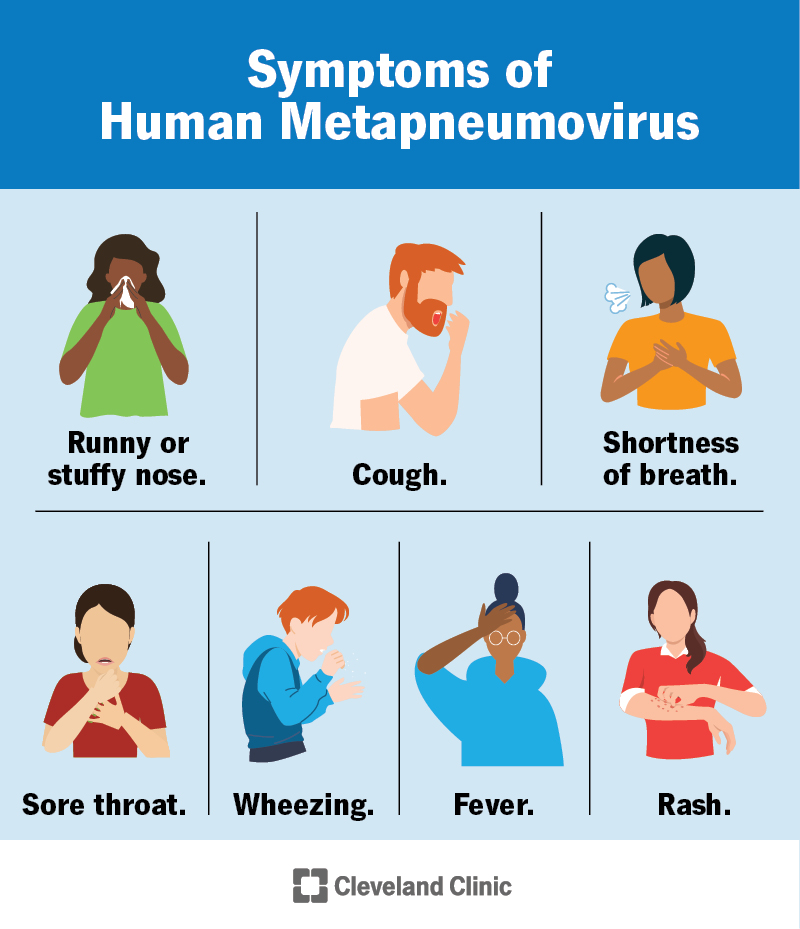Human Metapneumovirus Outbreak: Understanding the Risks and Responses
HMPV was first identified in 2001 and belongs to the Pneumoviridae family, which also includes the respiratory syncytial virus (RSV). The virus spreads through respiratory droplets when an infected person coughs or sneezes, making it highly contagious. This outbreak has particularly highlighted the importance of recognizing symptoms early and implementing preventive measures to protect at-risk groups.
The symptoms of HMPV infection typically resemble those of a cold or flu. Common indicators include cough, fever, nasal congestion, sore throat, and shortness of breath. While many individuals experience mild symptoms that resolve within one to two weeks, some may develop more severe conditions such as bronchiolitis or pneumonia. Infants under one year old and older adults with pre-existing health conditions are at heightened risk for serious complications.
For instance, consider a scenario where a young child develops a persistent cough and fever during the peak of winter. Parents might initially dismiss these symptoms as a common cold; however, if left unchecked, HMPV could escalate into a more serious respiratory condition requiring hospitalization. This underscores the need for parents and caregivers to remain vigilant about respiratory symptoms in children.
Currently, there is no specific antiviral treatment for HMPV. Management focuses on alleviating symptoms and providing supportive care. Over-the-counter medications such as acetaminophen or ibuprofen can help reduce fever and relieve pain. Additionally, nasal decongestants may ease breathing difficulties caused by congestion. In more severe cases where breathing becomes problematic, healthcare providers may prescribe inhalers or corticosteroids to manage inflammation.
Preventive measures play a vital role in controlling HMPV outbreaks. Good hygiene practices are essential; frequent handwashing with soap and water can significantly reduce transmission risks. Covering one’s mouth and nose when coughing or sneezing also helps prevent spreading the virus to others. Furthermore, maintaining distance from individuals exhibiting respiratory symptoms can protect vulnerable populations.
The timing of HMPV outbreaks is also noteworthy. In many regions, cases tend to rise during late winter and early spring. Understanding these seasonal patterns can aid healthcare systems in preparing for potential surges in cases. For example, long-term care facilities should implement strict visitor policies during peak seasons to safeguard their residents from infection.
Despite its prevalence, public awareness about HMPV remains limited compared to other respiratory viruses like influenza or COVID-19. This lack of awareness can lead to delays in seeking medical attention when symptoms arise. Health authorities must prioritize education campaigns that inform the public about HMPV’s symptoms, transmission routes, and preventive strategies.
In addition to individual actions, community-level responses are crucial in managing outbreaks effectively. Local health departments should collaborate with healthcare providers to monitor trends in HMPV cases actively. By sharing data on infection rates and hospitalizations, they can identify hotspots and allocate resources accordingly.
Moreover, healthcare professionals must be equipped with the knowledge to distinguish between HMPV and other respiratory illnesses through accurate testing methods. Rapid diagnostic tests can facilitate timely interventions for those affected by HMPV while preventing unnecessary antibiotic prescriptions that do not address viral infections.
The ongoing research into HMPV is promising as scientists explore potential vaccines and antiviral therapies that could mitigate future outbreaks. Until then, public health initiatives must focus on educating communities about symptom recognition and prevention strategies to minimize transmission risks.
As we navigate through this outbreak of Human Metapneumovirus, it is imperative that individuals take responsibility for their health while also considering the well-being of those around them. By adopting proactive measures such as practicing good hygiene and staying informed about respiratory illnesses, we can collectively combat this viral threat.
The Human Metapneumovirus outbreak serves as a reminder that vigilance against respiratory viruses remains essential in our interconnected world. As we continue to learn more about this virus and its impact on public health, fostering community awareness will be key in safeguarding our most vulnerable populations from severe illness.


